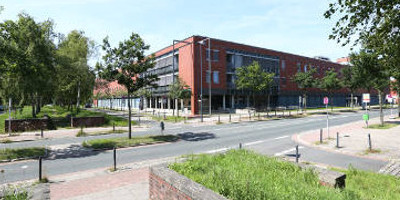Methods Courses in Marine Microbiology
This basic practical course trains students in theory and practice in methods used in marine microbiological research. Students receive an intensive training in each of the disciplines listed below, and by the end of the course, are familiar with the wide array of techniques used in the field of marine microbiology. This intensive, yet broad training, with emphasis on the links between the disciplines give the students the basis they need for learning to use synergistic and interdisciplinary methods in their future research. Students from the University of Bremen may apply for this course, but total class size is limited to 15 students to ensure a hands-on training. The following disciplines are covered:I. Biogeochemistry
Flux and transport studies in marine sediments
Techniques for measurements of biogeochemical processes
Microanalytical techniques (microsensors, microimaging, 14C-imaging)
Modelling of biogeochemical processes
II. Prokaryotic Microbiology
Isolation and cultivation of marine prokaryotes
Aerobic and anaerobic techniques
Quantification of microbial biomass and activity
III. Ecophysiology of Phototrophic Prokaryotes
Isolation and characterization of phototrophic bacteria and photopigments, enzymology, HPLC, gas chromatography
IV. Ecophysiology of Eukaryotic Microorganisms
Sampling and isolation, identification, cultivation
Methods: analysis of cellular components: ions, low molecular weight compounds (HPLC, gas chromatography, enzymatic estimation)
V. Molecular Ecology and Genetics of Marine Microorganisms
Methods: PCR, cloning, sequencing, in situ hybridization, phylogenetic analyses, genomics, differential gene expression
Habitats: plankton, sediments, deep sea, biofilms, symbioses.


